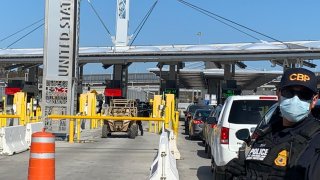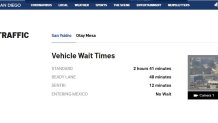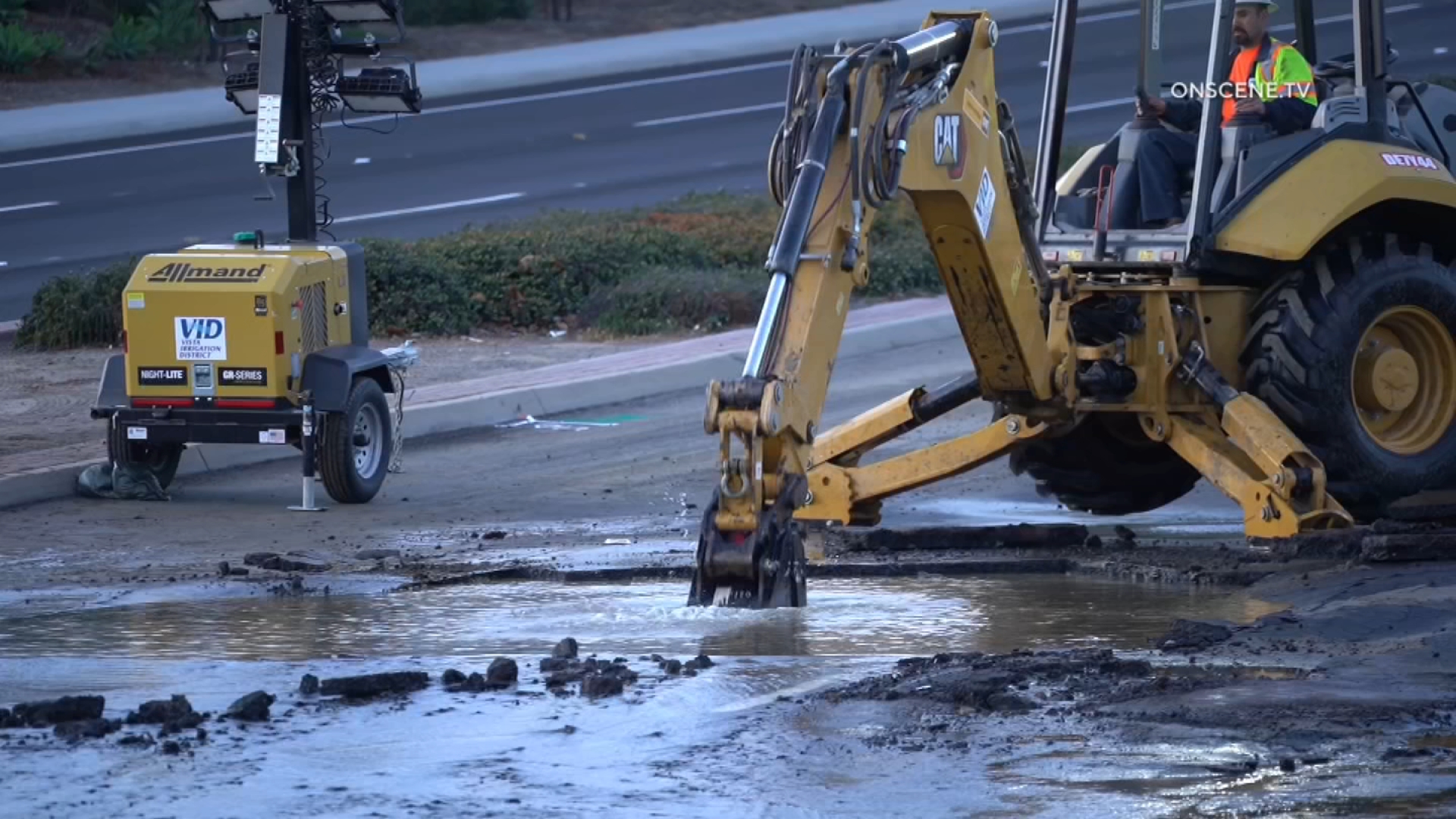
What to Know
- Non-essential travel resumes Monday, ending a 19-month freeze due to the COVID-19 pandemic
- Non-citizen travelers should be prepared to provide proof of COVID-19 vaccination when crossing into the U.S.
- Traffic is expected to increase at all ports of entry and visitors are encouraged to avoid traveling in peak times
The U.S. reopened its land border crossings to non-essential travel on Monday, ending a 19-month freeze due to the COVID-19 pandemic as the country moves to require all international visitors to be vaccinated against the coronavirus.
To celebrate the reopening, dignitaries from both sides of the border gathered Monday morning at the San Ysidro Port of Entry south of San Diego. More than 200 businesses in the South Bay town closed permanently during the pandemic due to the lack of cross-border tourism.
Get top local stories in San Diego delivered to you every morning. Sign up for NBC San Diego's News Headlines newsletter.
NBC 7 Border Traffic Module
Download the NBC 7 app for Apple or Android, or the Telemundo 20 app for Apple or Android, to track wait times at the border in real-time. You can also get the latest wait times on the homepage of NBC7.com and Telemundo20.com. Just scroll down to the Border Traffic module.

Vehicle, rail and ferry travel between the U.S. and Canada and Mexico has been largely restricted to essential travel, such as trade, since the earliest days of the pandemic.
Both Mexico and Canada have pressed the U.S. for months to ease restrictions on travel that have separated families and curtailed leisure trips since the onset of the pandemic. The latest move follows last month's announcement that the U.S. will end country-based travel bans for air travel, and instead require vaccination for foreign nationals seeking to enter by plane.
Here is what you need to know:
What documents do I need to bring?
Starting Nov. 8, when arriving at a U.S. land port of entry, non-citizen travelers should be prepared to provide proof of COVID-19 vaccination, as outlined on the Centers for Disease Control and Prevention (CDC) website, and verbally state their reason for travel, according to the DHS website.
A U.S. Customs and Border Protection (CBP) spokesperson told NBC 7 that a picture on a mobile device, of your vaccine proof, is accepted. Also, officers are trained to recognize fraudulent vaccine documents.
Which vaccines will let you in?
Any COVID-19 vaccine approved for emergency use by the World Health Organization, which include the Pfizer, Moderna, and Johnson & Johnson vaccines used in the U.S. as well as most used overseas, such as AstraZeneca, Covaxin, Covishield, BIBP/Sinopharm and Sinovac.
It is important to note, that the government also announced those who are exempt from the vaccination requirement are travelers participating in clinical trials of COVID-19 vaccines and those who need to travel for humanitarian or emergency reasons.
Requirements needed if traveling through Cross Border Express (CBX)
People traveling to the U.S. through the cross-border corridor connecting Tijuana and San Diego’s international airports, known as the "Cross Border Express" (CBX) will also require proof of vaccination.
However, unlike those arriving directly at an airport in the United States, travelers will not be required to also present a negative COVID-19 test. In other words, all you need is vaccination proof.
Do children need to be vaccinated to enter the U.S.?
According to immigration officials, children ages 2 through 17 will not be required to be vaccinated.
Traffic is expected to increase at land borders
Officials with the Port of Entry announced their expectations of increased traffic and wait times for Nov. 8.
Moises Castillo, a U.S. Customs and Border Protection (CBP) officer in charge of the San Ysidro Port of Entry, said staffing will be ramped up.
“We are reassigning officers from different areas and putting them in our primary and secondary areas to speed up the process. We are expecting heavy travel on that day. Actually, for the next few weeks," Castillo said.
Castillo is asking the public to be patient with CBP officers and to prepare using the CBP One mobile app to fill out necessary paperwork prior to arriving at the border crossing.
People were asked to avoid crossing the border during peak times where many people who cross the border do so to work. That is, avoid traveling from 4 a.m. to 9 a.m. on weekdays and on weekends from 2 p.m. to 12 a.m.



